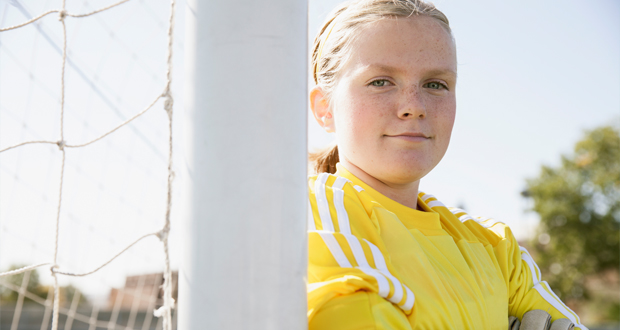There are a myriad of reasons why girls in Australia aged 15–17 may choose to quit sport. They may find that the values of sport participation are not meaningful for them. They may lack the necessary knowledge and skills to be successful in the sport. They may have part-time or casual employment. They may have new friends who are not interested in sport.
The recent 2019 Australian Youth Conference Report found nearly 50 per cent of girls quit sport by the age of 17. Only 55 per cent of girls aged between 11 and 17 years played sport, compared with 69 per cent of boys of the same age.
Meanwhile, 65 per cent of girls aged between 11 and 17 years agreed that playing sport makes them feel great about themselves. The report identified the main reason for girls to give up on sport was because they think they are “not good at sport” or they have “too much schoolwork”.
However, rather than dwelling on the types of things that could cause a girl to think she is not good at sport or why she feels she has too much schoolwork, let’s explore some strategies that the whole community can put in place to reduce this type of thinking in girls. As a female having lived through adolescence, mother to a 17-year-old girl, and the author of Teaching Health and Physical Education, I have a few strategies teachers, parents and communities can take to ensure girls continue to engage with sport:
- Be a role model – Participate in sport and show girls that sport is fun, that new friendships can be developed and that participation in sport is not about looking perfect or displaying perfect play. Let girls see how participation in sport is good for overall health and wellbeing.
- Get involved – Volunteer to assist with girls’ teams, help with their training, watch their games, races or performances, and offer support during hard times.
- Create a positive environment – Be thoughtful about your attitude and the language used in the community around girls and sport. Language can be a reflection of community attitudes which can degrade and diminish girls’ confidence in participating in sport (#likeagirl is a great example).
- Develop whole school approaches – School leadership, teachers, students, parents/carers, school staff, and community members should value participation in sport. They should work together to develop whole school approaches to support girl’s participation in sport, mental health and wellbeing.
- Flexible sport choices outside of school – When youth have schoolwork and employment commitments, they may not be able to attend mid-week training sessions or weekend games. Sports administrators need to be more flexible with the choices available to youth and could also establish social sporting teams for youth that are more focused on participation and inclusion.

Natalie McMaster is author of Teaching Health and Physical Education (Oxford University Press) and associate lecturer in education at the University of the Sunshine Coast.
Do you have an idea for a story?Email [email protected]
 Education Review The latest in education news
Education Review The latest in education news
